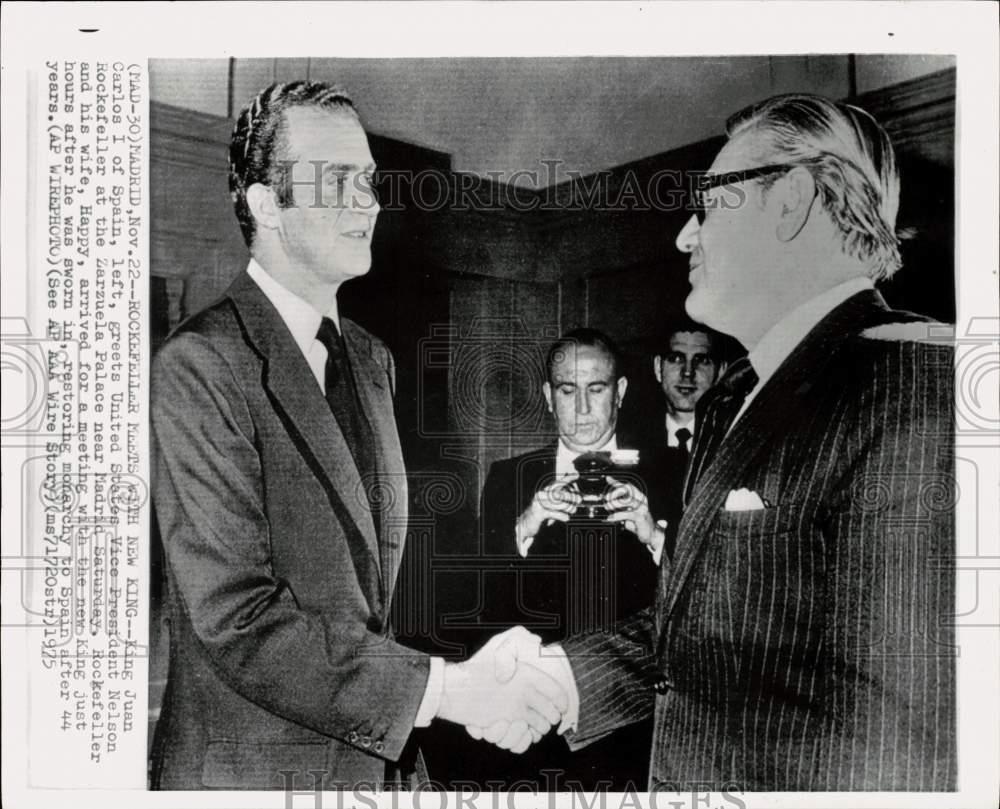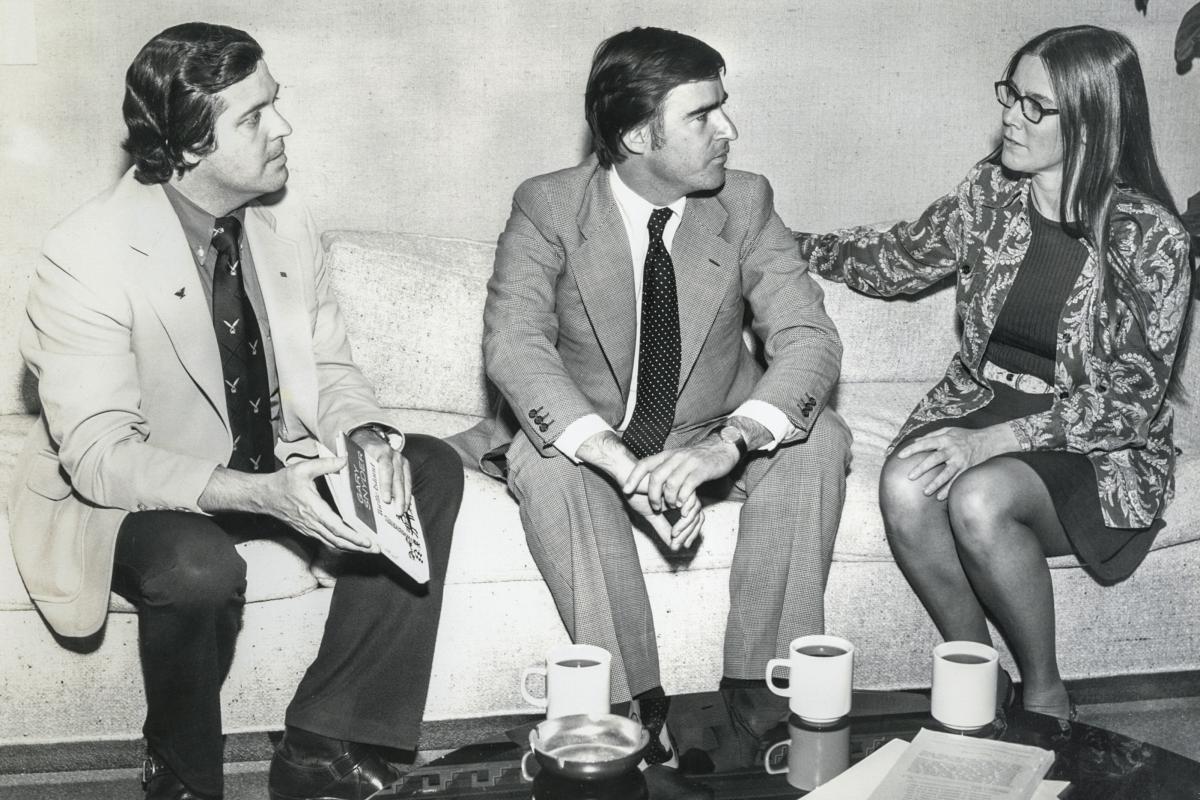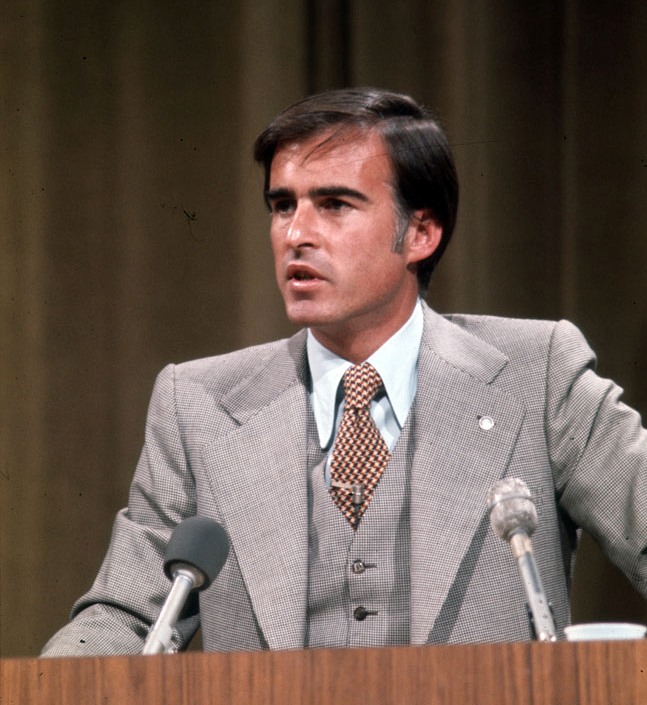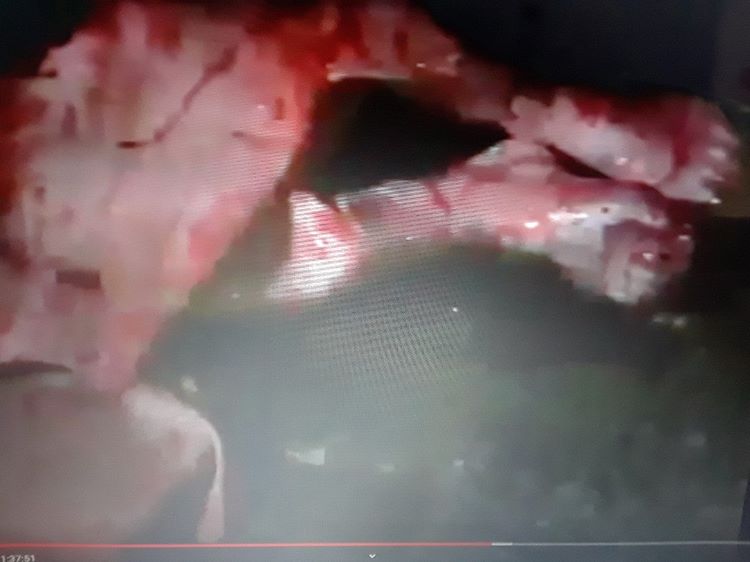49ersfootball
Well-known member
February 13th, 1977: Former President Nelson Rockefeller overwhelmingly confirmed as the next US Ambassador to Spain by the United States Senate

US Ambassador to Spain Nelson Rockefeller greeting King Juan Carlos I of Spain at the Zarzuela Palace near Madrid after presenting his credentials.
The United States Senate voted overwhelmingly 83-0 in confirming former President Nelson Rockefeller as the next US Ambassador to Spain. Following being sworn into office by US Secretary of State Walter Mondale, Rockefeller boarded his private plane & flew to Madrid, Spain where he was driven to the Zarzuela Palace & Arrival Honors were held including an Honor Guard inspection before being escorted inside the Palace to present his credentials to King Juan Carlos I.
February 13th, 1977: Guys & Dolls closes at Broadway Theater NYC following 239 performances.
February 15th, 1977: Social Democrats win the parliamentary elections in Denmark.
February 18th, 1977: George Harrison, formerly of the Beattles, releases True Love album.
February 19th, 1977: Shuttle Enterprise makes first test flight atop 747 jetliner.
February 20th, 1977: My Fair Lady closes at the St. James Theater NYC following 384 performances.
February 21st, 1977: The controversial Unification Church officiates the mass wedding of couples in NYC, NY St.
February 23rd, 1977: Oscar Romero becomes Archbishop of San Salvador, El Salvador.
February 24th, 1977: President Jerry Brown announced US foreign aid will consider human rights.
February 25th, 1977: Oil tanker explosion west of Honolulu, HI spills 31 million gallons of oil.

US Ambassador to Spain Nelson Rockefeller greeting King Juan Carlos I of Spain at the Zarzuela Palace near Madrid after presenting his credentials.
The United States Senate voted overwhelmingly 83-0 in confirming former President Nelson Rockefeller as the next US Ambassador to Spain. Following being sworn into office by US Secretary of State Walter Mondale, Rockefeller boarded his private plane & flew to Madrid, Spain where he was driven to the Zarzuela Palace & Arrival Honors were held including an Honor Guard inspection before being escorted inside the Palace to present his credentials to King Juan Carlos I.
February 13th, 1977: Guys & Dolls closes at Broadway Theater NYC following 239 performances.
February 15th, 1977: Social Democrats win the parliamentary elections in Denmark.
February 18th, 1977: George Harrison, formerly of the Beattles, releases True Love album.
February 19th, 1977: Shuttle Enterprise makes first test flight atop 747 jetliner.
February 20th, 1977: My Fair Lady closes at the St. James Theater NYC following 384 performances.
February 21st, 1977: The controversial Unification Church officiates the mass wedding of couples in NYC, NY St.
February 23rd, 1977: Oscar Romero becomes Archbishop of San Salvador, El Salvador.
February 24th, 1977: President Jerry Brown announced US foreign aid will consider human rights.
February 25th, 1977: Oil tanker explosion west of Honolulu, HI spills 31 million gallons of oil.
Last edited:












